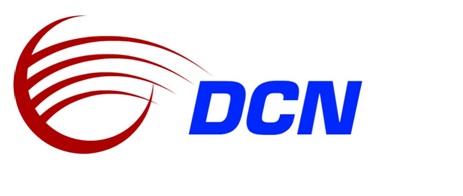There are many types of business organizations, especially in the growing world of remote work. With increasing autonomy in our work life, people are searching for ways to connect with each other again. DCN is proud to connect our members through our cooperative business model. But, what is a co-operative? What does it mean to be a member? DCN opens the door to show you how co-ops operate and benefit the local economies.
What is a Co-Op?
A co-operative organization, or a “co-op”, is an organization owned and run jointly by its members. The members then share in profit and/or benefits in exchange for their service to the co-op. Members can be anyone from consumers of a
particular industry, industry producers, farmers, employees of a particular industry, businesses, or multi-stakeholders. Co-ops appear in a wide span of industries- from childcare to farming, to solar energy, to transportation!
Principles of Co-Ops
So, what separates a co-op from a nonprofit, or a union? Co-ops base their operations around specific principles. They strive to show these principles through all of their actions towards their members and stakeholders. DCN works to ensure co-op principles in every aspect of our organization. Common co-op principles include:
- Voluntary Membership: membership or ownership in cooperative organizations are open to anyone who agrees to accept the responsibilities of membership. Members can also leave at any time without consequences. With DCN, members opt-in to being a part of the DCN co-operative network. Businesses can also opt-in to being subscribing clients as well.
- Democratic Member Control: Members are expected to actively participate in setting the policies of the organization. They are able to participate in making decisions that affect the organization on all levels. They also have voting rights that come with membership as well. So, the members are able to vote and voice their opinions on different issues. DCN’s members meet every year to vote on elected representatives and policies that affect the entire organization.
- Member Economic Participation: Members are able to contribute financially to the organization, often in the form of donations or dues. They also democratically control the capital, voting on how to spend funds and split assets among members. As DCN members, they are able to vote on any shared assets or capital.
- Education, Training, and Information: Co-operatives are expected to provide education and training for their members, elected representatives, and managers on a regular basis. Education and training is viewed as assisting the members in contributing to the co-operative. DCN works to provide our members with training and educational opportunities in and around the transportation industry.
- Cooperation Among Cooperatives: Co-operatives will partner with other organizations, specifically other co-operative organizations, on a local, regional, national, and international scale.
- Concern for the Communities: Co-operatives should make concerns for the community a top priority. Any actions they take around community concern should be towards sustainable development of their communities.
Co-Ops & You: By the Numbers
Co-ops are more common than you think! They influence the United States economy on a macro level, creating jobs and waves throughout the country. They appear across industries, from childcare to transportation. Here are some numbers to back it up…
- Over 29,000 organizations use the cooperative model in the United States.
- Co-ops are on the rise in many impoverished areas and countries, leading to an increase in wealth and education in smaller countries.
- Co-ops account for 1.5% of the United States GDP- a.k.a. More than $654,000,000,000 in revenue.
- Co-operatives generate over 12 million jobs and $74 BILLION in wages for employees.
- More than 20 million people are members of a co-operative in the United States.
- One of the largest sectors that utilize the co-op model is the social and public service sector. This includes healthcare, childcare, housing, and transportation (aka- DCN!).
Cooperative organizations are all over the world, benefiting many different groups in society. DCN functions as a co-op model so our members can have the autonomy they need with the benefits they deserve. We want our members to have a say in how their own organization is run. After all, it’s their organization!
Overall? Co-operatives are key to American life. They keep profits local, support local communities, and provide necessary services for people all over the country. DCN is proud to utilize the co-op model in our organization. It means our members get the benefits and services they need while getting a say in how their organization runs.
Curious about DCN’s co-op model and the benefits we provide our members? Contact us today to get all your questions answered!

